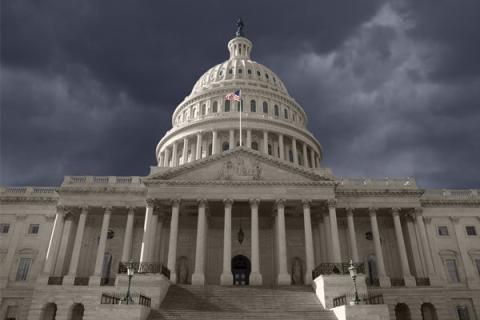 trekandshoot / shutterstock.com
trekandshoot / shutterstock.com
Civil war in Syria has been raging, in one form or another, since the Arab Spring uprisings of 2011. The resulting refugee crisis and recent use of chemical weapons on civilians has brought news of the conflict to the forefront. It is a long-standing and incredibly complex situation that has consumed America's foreign policy attention.
However, the overwhelming media focus on the Syrian conflict has drawn attention away from major domestic news items. With less than 40 congressional working days before the end of the year, here are some of the most pressing -- and ignored -- stories you didn't hear about during the Syria debate.
5. THE $40 BILLION FOOD STAMP CUT
House Majority Leader Cantor wants to eliminate SNAP waivers that allow able-bodied adults without dependents to collect benefits without being employed or enrolled in some sort of workforce entry program. Over the next decade, the proposal would save almost double the $20.5 billion cuts that led to the rejection of the House's farm bill in June. 4-6 million adults could lose eligibility for the program -- a number worth noting.
4. THE ESCALATING MINIMUM WAGE DEBATE
Following protests that saw fast-food workers striking in favor of a higher minimum wage, activists attempting to meet with Walmart executives were arrested in New York City. Similar protests and arrests also occurred in four other states, which should emphasize the scope and seriousness of the issue.
3. OBAMACARE IMPLEMENTATION
House Republicans are seeking another year-long delay in the implementation of the Affordable Care Act. Some similarly-minded legislators want a bill that also averts a government shutdown, but defunds Obamacare. By tying the proposal to the time-sensitive debt ceiling issue, the move will likely gain more attention as the actual vote nears and will lead to another major fight that will put the full faith and credit of the U.S. Treasury in jeopardy.
2. IMMIGRATION REFORM
Issues ranging from border security and a potential citizenship process remain a major congressional concern and Senator John McCain is pushing for some sort of action to be taken before the end of the year. With most of the country expecting some sort of comprehensive and realistic action to be taken at last, further delays caused by party-line voting will not be tolerated.
1. THE DEBT CEILING
According to Treasury Secretary Jack Lew, the nation literally won't have the funds to pay bills unless Congress votes to raise the debt ceiling in the next month. Defaulting on federal financial obligations could lead to a government shutdown -- among other severe consequences. Lawmakers are running out of time to come up with a deal on the debt ceiling which may very well be taken to the eleventh hour.
